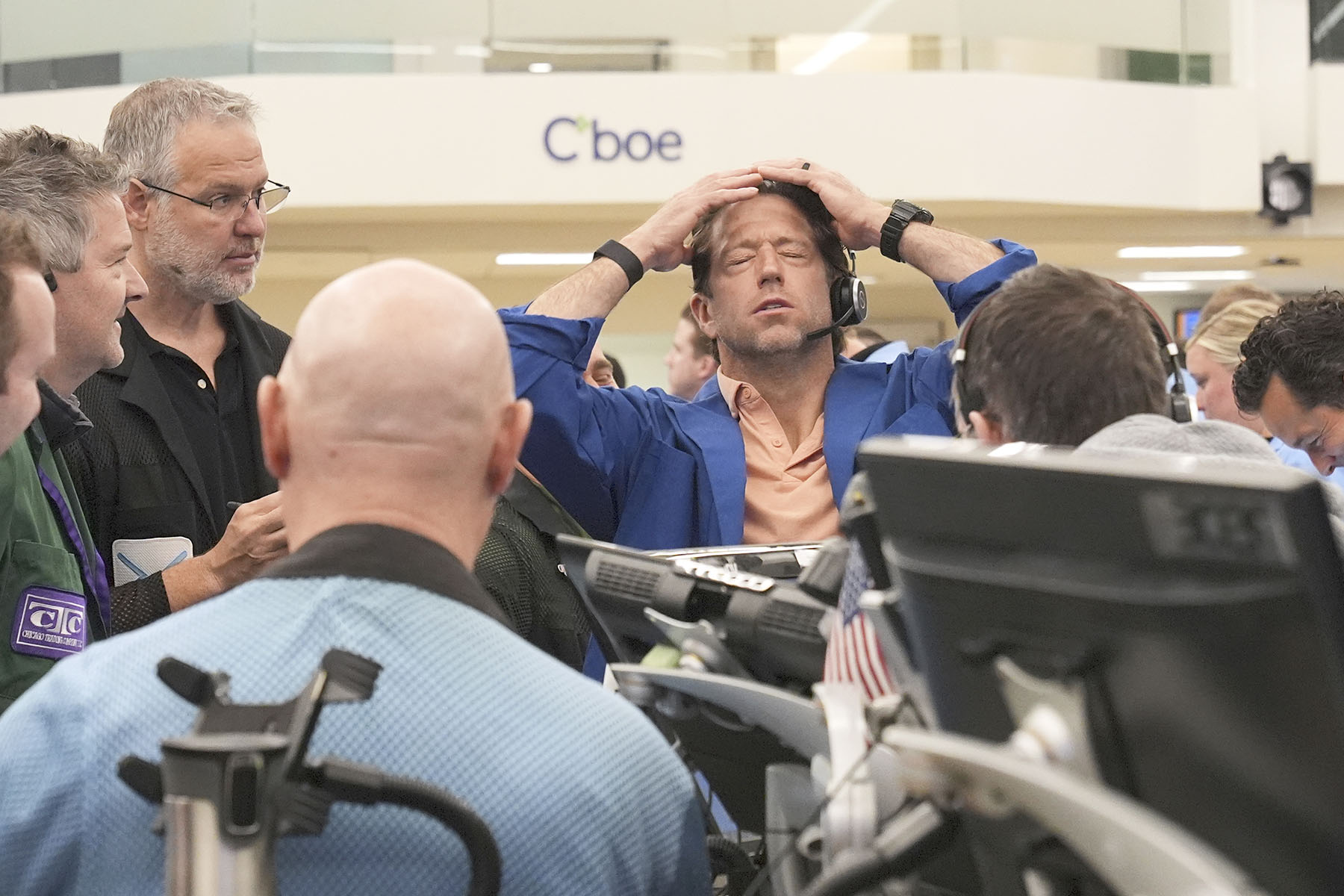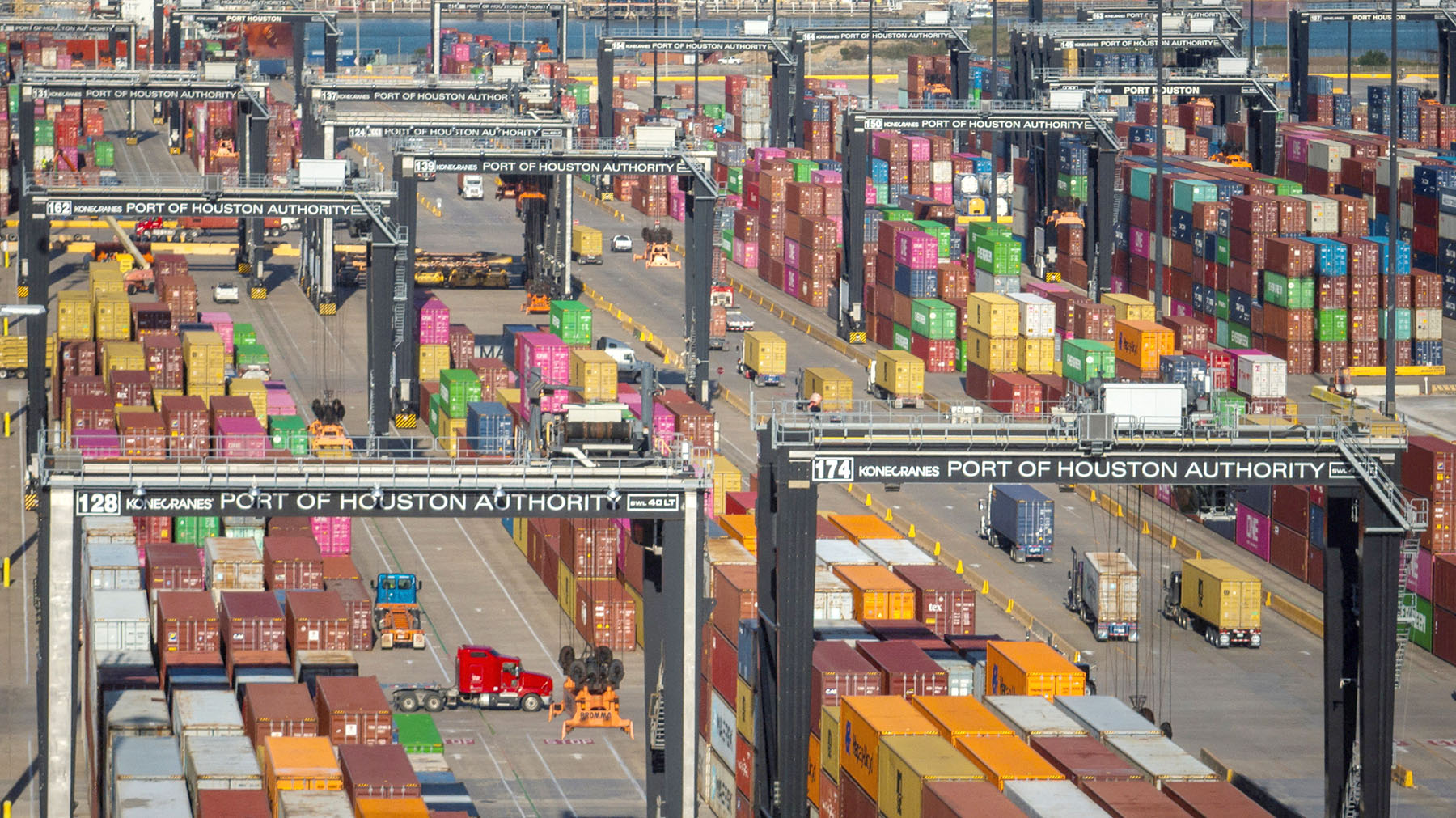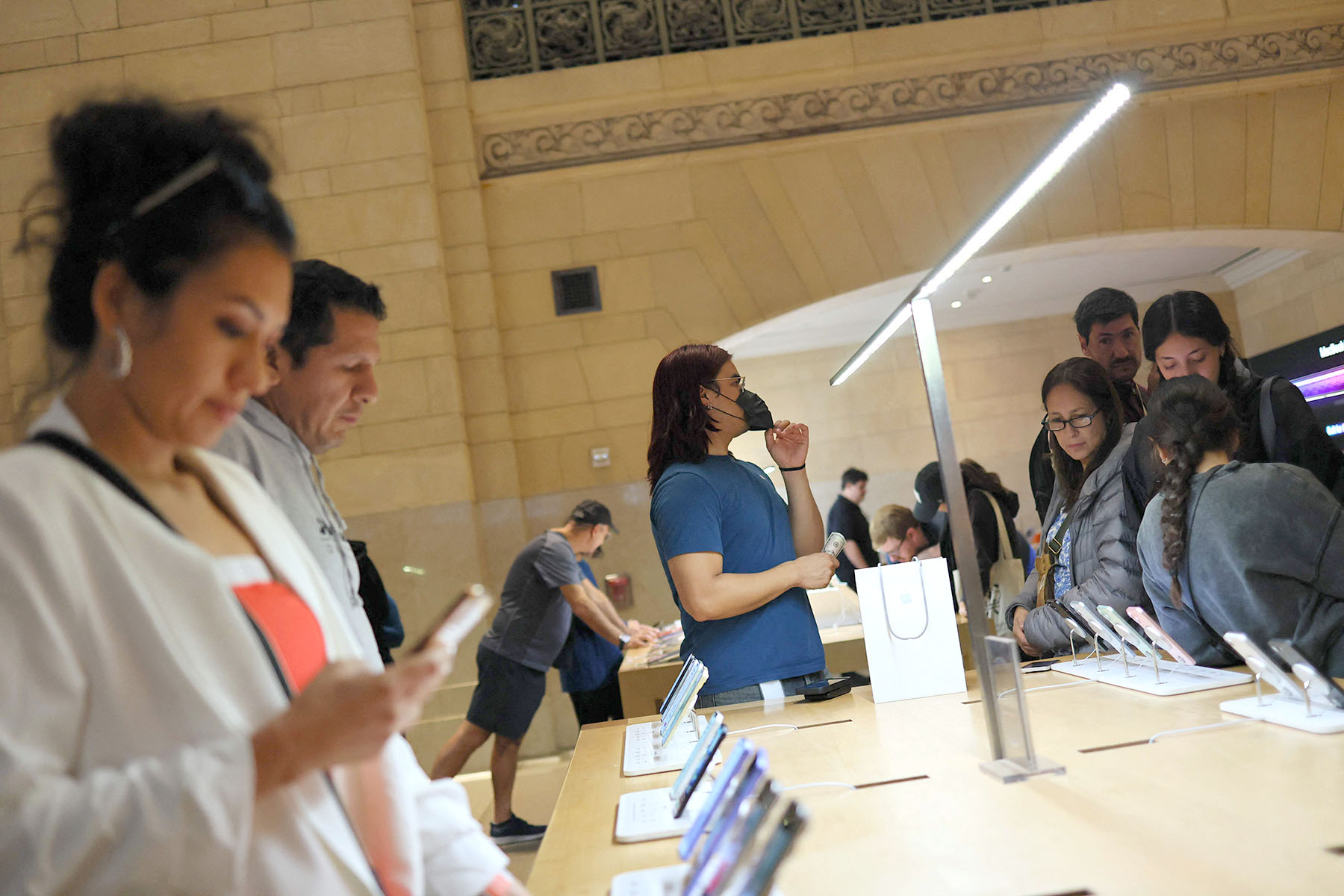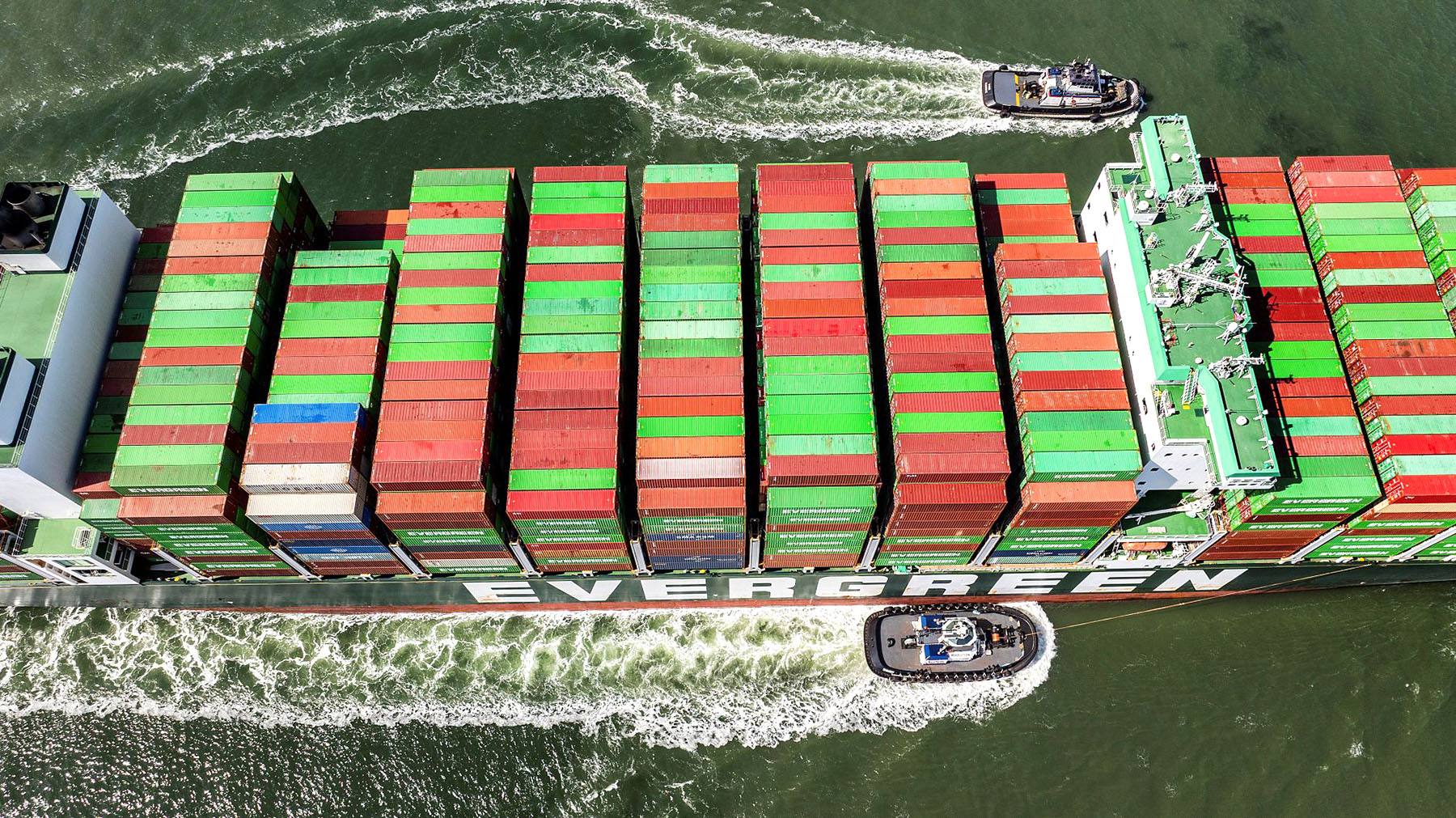Fall in investments, specter of job losses, manufacturing uncertainty loom

Wayne, an IT worker from Houston, Texas, said he does not need economic experts or the media to tell him how the tariffs will affect him and his family.
"As a family, we lost a large chunk of our total investments including the 401(k) retirement fund in the two days following so-called 'Liberation Day'. Yes, part of my wealth got liberated and is now free of me," said Wayne, who wants to be identified only by his first name.
He didn't want to go into the specifics, but said by the end of Tuesday his loss was almost $500,000.
After US President Donald Trump's April 2 announcement, the US stock market plunged on both Thursday and Friday with the S&P 500 Index down 10.53 percent in the last two sessions and Nasdaq Composite Index diving into the bear market, Xinhua News Agency reported. US markets remained volatile this week, after the White House confirmed plans to move forward with a dramatic increase in tariffs on Chinese goods.
"We were expecting a relatively comfortable retirement in a few years. I am not sure about that given the current situation," Wayne said. "It's not just about what we have lost in the stock market, but more about a future world of an unstable nature."
READ MORE: Trump pauses many of his tariffs, US stocks surge
Having weathered the 2000 internet bubble and the 2008 global financial crisis, Wayne said this time he's more worried, as the tariffs seem to be interrupting the global economic order, and the future seems unpredictable.
"The economic cycles of ups and downs may not apply anymore because this market sink is made by politics, not economic conditions. Can we still realistically expect an economy that will remain on an upward trajectory when we look beyond the current market? I am not feeling confident given other social and political changes occurring both domestically and internationally," he said.
One person who said he voted for Trump posted on social media: "Our 401(k) s are dropping like falling leaves, and we cannot live like this. I am very disappointed with him. If he keeps (up) this behavior, we will be ruined. The only people this won't hurt are the very rich. Trump says it's going well, but I don't see it."
Besides shrinking investments, people in Houston will soon pay more for a cup of coffee.
Cathy Tsai, a roaster of imported coffee beans, said her supplier told her the day after the tariff announcement that coffee bean prices had increased "by a lot".
They had already reached a record high in February, double the price of a year ago, according to industry data. Trump's new tariffs mean Americans will pay even higher prices for a cup of coffee.
"Our coffee beans are primarily from South American countries, and the prices are going up by 20 percent at least," Tsai said.
She said their retail prices usually range between $18 and $24 a pound (450 grams). "With the tariffs-induced price hike, we will have to bump up our prices, perhaps to $20 for our regular beans and to $27 for our specialty beans," she said.
"I will figure out the actual price increase better after I purchase the next batch of supplies."

Heavy inflation feared
Americans will pay more for coffee, as well as many other goods from clothing and shoes to household items, experts said.
Feng Ye, president of STA International Supply Chain Inc, an e-commerce logistics company, said the immediate effect of tariffs on imported goods is a direct cost rise for sellers. "When sellers face higher costs, those expenses inevitably get passed on to consumers," he told China Daily. "This will ultimately lead to more severe inflation."
He noted that while prices have not yet risen significantly due to current inventory levels, that will change soon. "Once this batch of inventory is sold out, the next wave of goods will definitely see a substantial price increase — estimated at 5 to 10 percent," Feng said, adding that there are currently no effective countermeasures to the tariffs, as the issue is a global one.
One contractor said he voted for Trump three times and likes a lot of what the US president is doing. "But these tariffs are killing me," he posted on social media. "I am lining up fewer jobs, especially high-end residential (ones), because they're all losing money in stocks."
He said his suppliers were telling him the costs of materials are expected to go way up. "I'm just a business owner who's getting hurt. For what, to bring low-paying manufacturing jobs from China?"
Another contractor shared a similar experience on social media, saying that he had lost three jobs in the last two weeks because of anxiety over the tariffs. "It was bad before, and now it's worse," the contractor said.

Housing delays
The impact will go beyond putting off projects such as bathroom or kitchen renovations, and make housing more unaffordable. The tariffs will also have a negative impact on rebuilding efforts following the major fires in California earlier this year, industry experts said.
Canada and Mexico, two early targets of the US tariffs, have major roles in the industry. The US gets about 30 percent of its lumber from Canada every year, and a majority of home appliances are manufactured in Mexico. Canada is also a top supplier of steel to the US, a major material for house construction.
Marc Saracco, a sales manager at wholesale distributor Capital Lumber Company in California, told a local news outlet that tariffs on lumber and appliances "would cost a homeowner between $30,000 and $40,000 per house".
About 15,000 houses were burned down in Los Angeles, and the tariffs will add $600 million to the rebuild costs, he said.
Saracco said it is "hard to stomach" the tariffs when he considers the future of his business and fire-hit Pasadena, where he saw his friends lose everything.
If the tariffs on Canada and Mexico stay in place, the cost of a new home construction in the US will increase between $17,000 and $22,000, on top of the current $422,000, property research firm Cotality said in an analysis.
"The economics are now upside down. Even incremental increases in the cost of materials, labor, and equipment make it that much more difficult to build a home profitably. This further disrupts efforts to close the critical gap in US housing supply," said Peter Carroll, Cotality's executive vice-president, in an analysis of Trump's tariffs and housing affordability.
The average home price rose 2.9 percent year-on-year in February, and is predicted to increase another 4.2 percent in the next 12 months, Cotality data showed.

Job losses, US recession
The contagion from the global tariffs is expected to hit both the international and US job markets.
A young man who calls himself a "conservative" posted on social media that his company laid off more than 200 people about three months ago. After the tariffs were announced, the company sent out emails stating that if the 46 percent tariff on Vietnam is not dropped, more layoffs are coming.
"They explicitly said that paying the tariffs is still cheaper than moving everything back into the US, and I would really prefer not to lose my job when I'm about to get married, buy a house, and have kids," he wrote.
Vietnam has offered a zero-tariff rate for US goods. On Wednesday Deputy Prime Minister Ho Duc Phoc was set to talk with US Treasury Secretary Scott Bessent about reversing the tariff decision.
"Vietnam sends us $120 billion worth of goods every year, and we send them $12 billion of goods every year. It's not the tariff, it has nothing to do with (the) tariff," US Commerce Secretary Howard Lutnick said in a TV interview on Sunday.
The worry about unemployment is not unfounded.
A recent CNBC survey found that 69 percent of CEOs expect a recession, and half of them anticipate the downturn will come this year. JP Morgan has put the odds of a recession at 60 percent.
About 37 percent of CEOs surveyed by CNBC said they expect to cut jobs to offset rising costs. One of them called it the "Trump recession", as the executives expressed discontent over the tariffs.
"Disappointingly stupid and illogical," one CEO told CNBC. "Without faith that our government knows what it is doing, it is impossible for businesses to thrive."
Another CEO said: "Trump has imposed tariffs on component parts that are simply unavailable in the US and never will be. He has surrounded himself with an incompetent cadre of 'yes' men and women unable or unwilling to offer him cogent counsel."
China expertise needed
Daniel, who owns battery factories in Texas and California and has more than 30 years of experience in the industry, believes in his sector the tariffs could end up hurting the US more than China.
If the US intends to make all its batteries domestically, it has to buy equipment and some specialty formulas from China because the US simply doesn't yet have the technology, said Daniel, who requested his last name be withheld.
"We are at least 10 years behind China in battery technology," he said.
China has the best battery manufacturing equipment, specialty formulas, and specialty additives, for a variety of cells, due to its large number of battery factories and decades of development, he said, adding China's industry was highly developed and automated.
A large percentage of batteries used in electrical vehicles in the US are from China because its production capacity can't be replaced by any other country, he said.
The US is buying a wide variety of Chinese battery cells for use in drones, medical equipment, and other high-tech and electronic equipment, and the average US consumer is not aware of this, he said.
"If the trade war accelerates to a point that China starts to prohibit the export of those tier-one special batteries and cells to the US, it will spell trouble for us because it affects a wide range of equipment used in research labs and hospitals as well as by many suppliers of OEMs (original equipment manufacturers) in the US," said Daniel.
ALSO READ: Sources: ECB braces for bigger-than-anticipated growth hit from tariffs
He estimated that it will take the US at least five years to build a complete battery supply chain, because it currently has little access to the raw materials needed to make some of the batteries.
The way the tariffs had been applied had greatly harmed his business. "It's decided by the Trump administration alone without negotiations. We are not given time to prepare or plan. The guideline is unclear, and the officials in the Trump administration are sending out different signals," he said, adding confusion over tariff negotiations meant business people "just don't know what to expect".
To handle the uncertainty, Daniel said he is only supplying existing customers on a limited basis from his current inventory.
MTU, a Rolls-Royce power solution brand that provides engines for industrial and defense applications, has issued a notice saying it has temporarily stopped quoting prices due to uncertainty about costs.
"Suddenly a large number of businesses can't quote prices, can't accept new orders, and can't ship products. It does great harm to the economic output," Daniel said.
mayzhou@chinadailyusa.com


